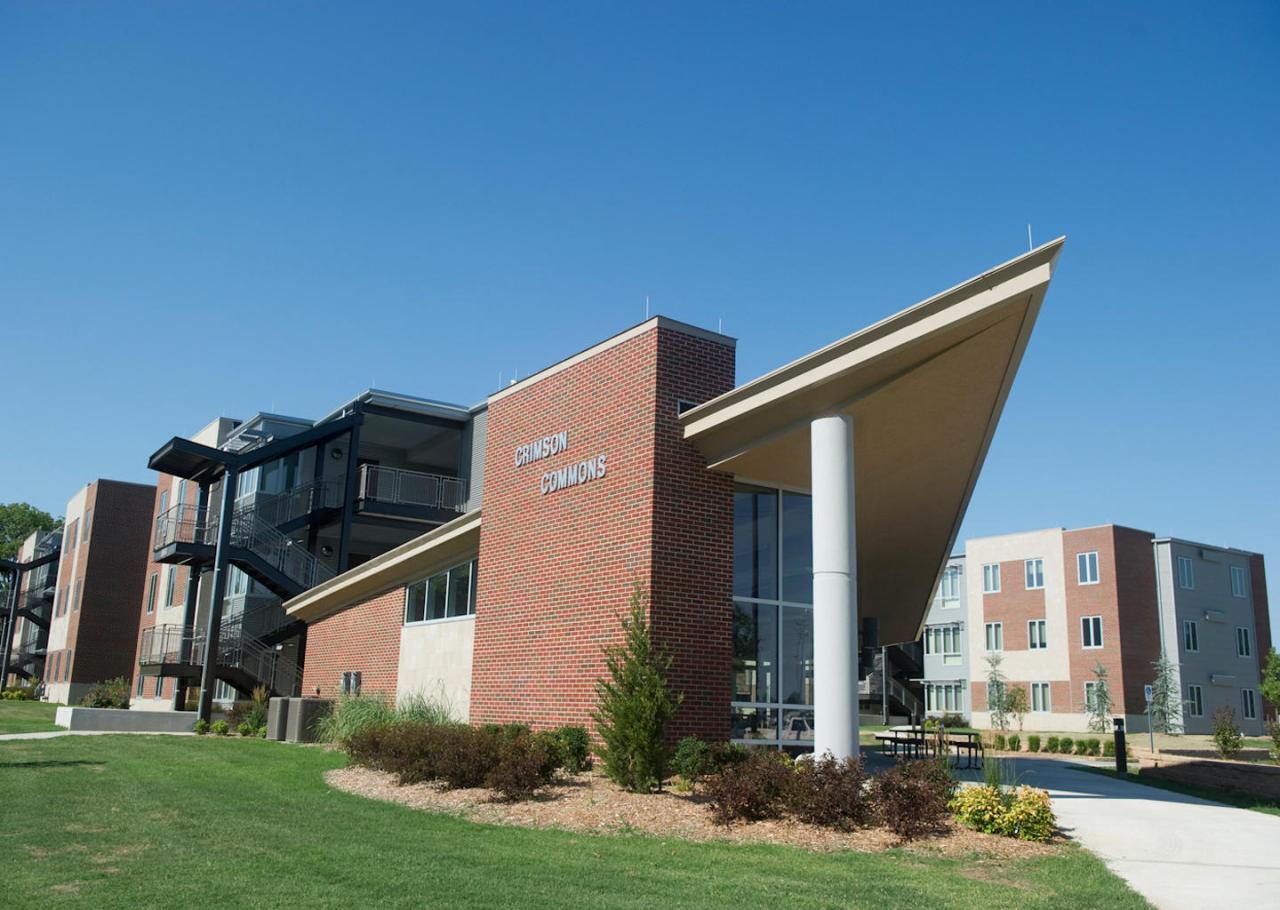Pittsburg state university ks transtion to teaching program – The Pittsburg State University KS Transition to Teaching Program provides a unique opportunity for individuals seeking a fulfilling career in education. This program caters to those who have a passion for learning and a desire to shape young minds. It offers a comprehensive curriculum, combining theoretical knowledge with practical experience, preparing aspiring teachers for the challenges and rewards of the classroom.
The program’s structure is designed to accommodate individuals from diverse backgrounds, offering flexibility in terms of course scheduling and specializations. The faculty comprises experienced educators with a wealth of knowledge and expertise, dedicated to fostering a supportive and stimulating learning environment.
Curriculum and Coursework

The Transition to Teaching program at Pittsburg State University is designed to provide aspiring educators with the knowledge, skills, and experiences necessary to succeed in the classroom. The curriculum is a blend of theory and practice, offering a comprehensive approach to teaching and learning.
The program’s coursework is organized into core courses that cover a wide range of educational topics, including educational psychology, curriculum development, assessment, and classroom management.
Core Courses
The Transition to Teaching program includes a variety of core courses that are essential for aspiring educators.
- Educational Psychology: This course examines the cognitive, social, and emotional development of learners. Students explore various theories of learning, motivation, and classroom management strategies. They also learn about the impact of diversity and cultural backgrounds on learning.
- Curriculum Development: This course focuses on the process of designing and implementing effective curriculum. Students learn about different curriculum models, instructional strategies, and the importance of aligning curriculum with learning objectives. They also gain experience in developing and evaluating curriculum materials.
- Assessment and Evaluation: This course provides an in-depth understanding of various assessment methods, including formative and summative assessments. Students learn about the principles of assessment, how to design and administer assessments, and how to interpret assessment data to improve instruction.
- Classroom Management: This course explores effective strategies for creating a positive and productive learning environment. Students learn about different classroom management models, techniques for establishing rules and procedures, and strategies for addressing student behavior.
- Introduction to Teaching: This course provides an overview of the teaching profession, including its history, philosophy, and ethical considerations. Students explore different teaching roles, examine the challenges and rewards of teaching, and develop a deeper understanding of the teacher’s role in society.
Learning Outcomes
The Transition to Teaching program aims to equip students with a range of skills and knowledge, including:
- Understanding of Learning Theories: Students will develop a strong understanding of various learning theories and their implications for classroom practice.
- Curriculum Development Skills: Students will be able to design and implement effective curriculum, aligning it with learning objectives and student needs.
- Assessment Proficiency: Students will gain proficiency in various assessment methods, including designing, administering, and interpreting assessments.
- Classroom Management Expertise: Students will develop expertise in classroom management, including establishing rules, procedures, and strategies for addressing student behavior.
- Teaching Skills and Techniques: Students will learn and practice a variety of teaching skills and techniques, including lesson planning, instructional delivery, and differentiation.
Assignments and Activities
The Transition to Teaching program incorporates a variety of assignments and activities to enhance learning and provide practical experience. These include:
- Case Studies: Students analyze real-life classroom scenarios and apply theoretical concepts to develop solutions.
- Lesson Plans: Students create detailed lesson plans that integrate learning objectives, instructional strategies, and assessments.
- Classroom Observations: Students observe experienced teachers in various settings to gain insights into classroom dynamics and effective teaching practices.
- Teaching Practicum: Students gain practical experience in real-world classrooms under the guidance of experienced mentors.
- Portfolio Development: Students compile a portfolio of their work, showcasing their skills, knowledge, and growth throughout the program.
Student Testimonials and Program Reviews
The Transition to Teaching program at Pittsburg State University has received positive feedback from its students, showcasing its effectiveness in preparing aspiring educators. This section explores student testimonials and program reviews, highlighting the program’s strengths and areas for improvement.
Student Testimonials
Student testimonials provide valuable insights into the program’s impact on students’ professional development and personal growth. The program’s emphasis on practical experience and individualized support is consistently praised by students.
“The Transition to Teaching program has been instrumental in my journey to becoming a teacher. The program’s focus on hands-on learning and mentorship has provided me with the confidence and skills I need to succeed in the classroom.” – Sarah, a former student
“I was nervous about transitioning from my previous career to teaching. However, the program’s supportive environment and experienced faculty helped me overcome my doubts and develop the necessary skills to thrive as an educator.” – John, a current student
Program Reviews
Program reviews from various sources provide a comprehensive understanding of the program’s strengths and weaknesses. Online platforms like RateMyProfessors and student surveys consistently highlight the program’s strong faculty, practical experience opportunities, and supportive learning environment.
- RateMyProfessors: The Transition to Teaching program consistently receives high ratings on RateMyProfessors, with students praising the faculty’s expertise, accessibility, and dedication to student success.
- Student Surveys: Student surveys consistently indicate high satisfaction with the program, particularly with its focus on practical experience, individualized support, and the program’s strong emphasis on preparing students for the challenges of the teaching profession.
Strengths and Areas for Improvement
Based on student feedback, the Transition to Teaching program excels in providing practical experience and individualized support. However, some areas for improvement include increasing the program’s focus on technology integration in the classroom and offering more opportunities for students to engage with diverse learners.
- Strengths: The program’s strengths lie in its hands-on learning opportunities, mentorship program, and supportive learning environment. The program effectively prepares students for the challenges of the teaching profession.
- Areas for Improvement: Students have suggested that the program could benefit from incorporating more technology integration into the curriculum and offering more opportunities for students to engage with diverse learners.
Program Cost and Financial Aid
The Transition to Teaching program at Pittsburg State University is designed to be affordable and accessible to all students. The program offers various financial aid options to help students manage the cost of their education.
This section provides a detailed overview of the program’s costs, including tuition fees and other associated expenses. It also discusses the availability of scholarships, grants, and other financial aid options for students. Finally, it explores resources and information about student loan options.
Tuition and Fees
Tuition and fees are a significant part of the program’s cost. The cost of tuition varies depending on the student’s residency status (in-state or out-of-state) and the number of credit hours taken. In addition to tuition, students are also responsible for various fees, including technology fees, student activity fees, and course-specific fees.
Here is a breakdown of the estimated costs for the Transition to Teaching program:
- Tuition: The cost of tuition for the Transition to Teaching program is estimated to be around $4,000 per semester for in-state students and $7,000 per semester for out-of-state students. This cost may vary depending on the number of credit hours taken.
- Fees: Students can expect to pay an additional $500-$1,000 per semester in fees, including technology fees, student activity fees, and course-specific fees.
- Books and Supplies: The cost of textbooks and other course materials is estimated to be around $500-$1,000 per semester.
- Living Expenses: Living expenses, such as housing, food, and transportation, can vary significantly depending on the student’s lifestyle and location. Students should budget around $10,000-$15,000 per year for living expenses.
Financial Aid Options
The Transition to Teaching program offers various financial aid options to help students manage the cost of their education. These options include scholarships, grants, and student loans.
Scholarships
Pittsburg State University offers a variety of scholarships to students in the Transition to Teaching program. These scholarships are based on academic merit, financial need, and other factors. The university’s financial aid office can provide information about available scholarships and the application process.
Grants
Grants are a form of financial aid that does not need to be repaid. The federal government and state governments offer several grant programs for students pursuing a degree in education. The university’s financial aid office can provide information about available grant programs and the application process.
Student Loans
Student loans are a common way to finance education. The federal government and private lenders offer several student loan programs. Students should carefully consider the terms and conditions of student loans before borrowing.
Note: It is essential to understand the repayment terms and interest rates associated with student loans before borrowing.
The university’s financial aid office can provide information about available student loan programs and the application process. Students should also explore resources like the Federal Student Aid website for information about federal student loan programs.
Comparison to Other Teacher Education Programs

The Pittsburg State University KS Transition to Teaching program is a highly competitive and reputable program, attracting many aspiring educators. It’s crucial to compare it to other programs in the region to understand its unique features and strengths. This comparison will help you make an informed decision about which program best suits your needs and aspirations.
Program Structure and Curriculum
The Pittsburg State University KS Transition to Teaching program offers a flexible and rigorous curriculum designed to equip aspiring teachers with the knowledge, skills, and experience necessary for success in the classroom. The program’s structure is designed to accommodate individuals with diverse backgrounds and experiences. It’s important to compare this program to other similar programs in the region to understand its unique features and strengths.
- The program emphasizes hands-on experience through student teaching placements, which are carefully selected to provide diverse learning opportunities. This focus on practical experience is a hallmark of the Pittsburg State program and sets it apart from other programs that may emphasize theoretical knowledge over practical application.
- The program’s curriculum is aligned with current educational standards and best practices, ensuring graduates are well-prepared to meet the challenges of today’s classrooms. The curriculum is constantly reviewed and updated to reflect the latest trends in education, ensuring graduates are prepared to teach effectively in the 21st century.
- The program offers a variety of specializations, allowing students to tailor their education to their specific interests and career goals. This flexibility allows students to focus on areas that are particularly relevant to their chosen field, enhancing their marketability and preparing them for specialized roles within the education system.
Program Accreditation and Recognition: Pittsburg State University Ks Transtion To Teaching Program
The Pittsburg State University (PSU) Transition to Teaching program holds significant accreditation and recognition, reflecting its commitment to quality and preparing effective educators. Accreditation and recognition demonstrate the program’s adherence to rigorous standards and its dedication to producing graduates equipped with the knowledge and skills necessary for successful teaching careers.
Accreditation Status
Accreditation is a formal process that ensures a program meets specific quality standards. The PSU Transition to Teaching program is accredited by the Council for the Accreditation of Educator Preparation (CAEP), a nationally recognized organization that sets standards for teacher preparation programs.
CAEP accreditation signifies that the program has met rigorous standards for quality, ensuring graduates are prepared to meet the demands of the teaching profession.
This accreditation is crucial for program quality and student outcomes. It ensures the program meets high standards for curriculum, faculty qualifications, and student learning experiences. Graduates from CAEP-accredited programs are often eligible for teaching licenses in multiple states, increasing their job opportunities.
Program Updates and Future Developments
The Pittsburg State University Transition to Teaching program is continuously evolving to meet the changing needs of the education field and ensure that our graduates are well-prepared for successful careers as educators. We are committed to providing our students with the most up-to-date knowledge, skills, and experiences to excel in their chosen profession.
We are constantly evaluating our program and seeking ways to improve it. This includes incorporating new research and best practices, expanding our partnerships with schools and districts, and enhancing our technology infrastructure. We also prioritize providing our students with opportunities to engage in real-world experiences through internships, field placements, and mentorship programs.
Program Enhancements
The program is undergoing several enhancements to enhance the learning experience and prepare graduates for the challenges of the modern educational landscape.
- Integration of Technology: The program is incorporating more technology-based learning experiences to equip students with the skills necessary to navigate the increasingly digital environment of education. This includes incorporating online learning platforms, interactive simulations, and virtual reality experiences.
- Focus on Social-Emotional Learning: Recognizing the importance of social-emotional development in students, the program is expanding its curriculum to include a strong emphasis on social-emotional learning (SEL). This will equip future educators with the knowledge and skills to foster emotional intelligence, empathy, and positive relationships in their classrooms.
- Emphasis on Diversity and Inclusion: The program is committed to preparing culturally responsive educators who are equipped to create inclusive and equitable learning environments for all students. This includes incorporating coursework and experiences that address issues of diversity, equity, and inclusion, and providing opportunities for students to engage with diverse populations.
Program Expansion, Pittsburg state university ks transtion to teaching program
The program is exploring new avenues for expansion to better serve the needs of aspiring educators.
- Online Program Options: The program is considering the development of online program options to make the Transition to Teaching program more accessible to individuals who may not be able to attend traditional on-campus programs. This would allow students to pursue their teaching credentials from anywhere in the world.
- Specialization Tracks: The program is exploring the creation of specialized tracks within the Transition to Teaching program, allowing students to focus their studies on specific areas of education, such as early childhood education, special education, or STEM education. This would provide students with deeper knowledge and skills in their chosen area of specialization.
Last Word

The Pittsburg State University KS Transition to Teaching Program is a testament to the university’s commitment to providing high-quality education and preparing future educators for success. With its rigorous curriculum, hands-on field experience, and dedicated faculty, this program equips graduates with the skills and knowledge necessary to make a meaningful impact in the lives of students. By choosing this program, individuals embark on a rewarding journey toward a fulfilling career in education, leaving a lasting legacy on the future generation.
Pittsburg State University’s transition to teaching program offers a comprehensive pathway for aspiring educators, providing a solid foundation in educational theory and practice. While the program focuses on practical skills, some graduates might seek further specialization through programs like Harvard University certificate programs which offer advanced training in areas like educational leadership or curriculum development.
This blend of practical experience and specialized learning can equip educators with the knowledge and skills to excel in today’s dynamic educational landscape.
